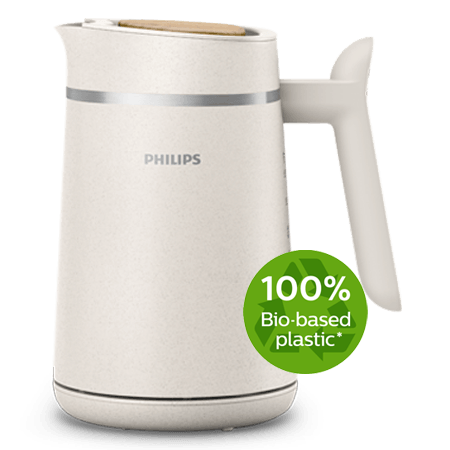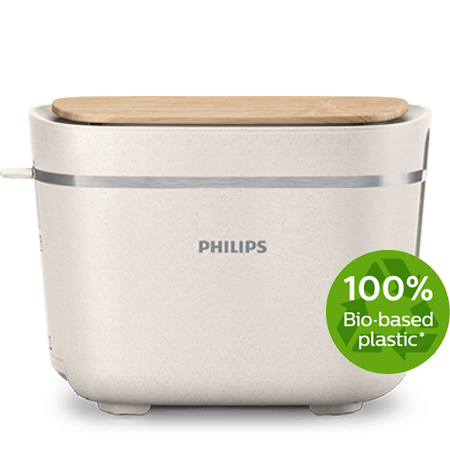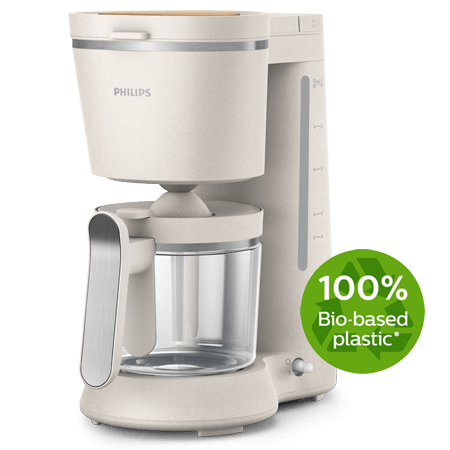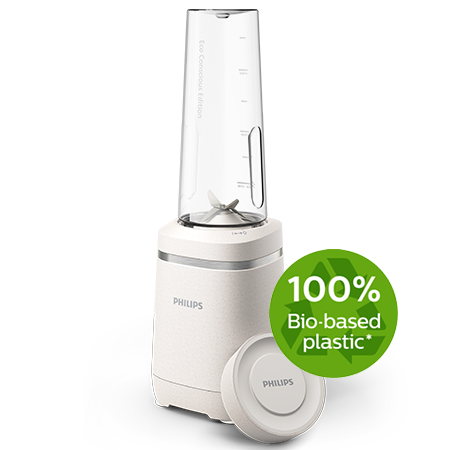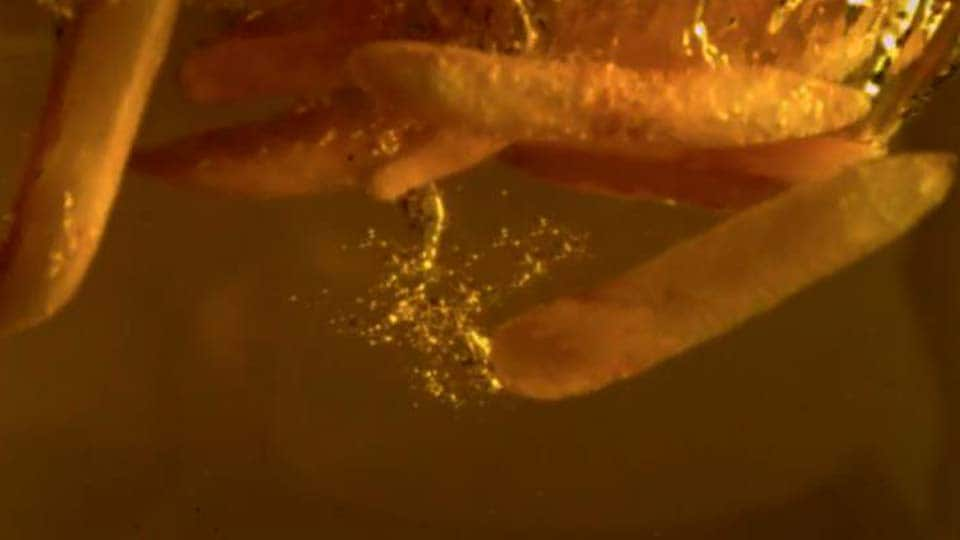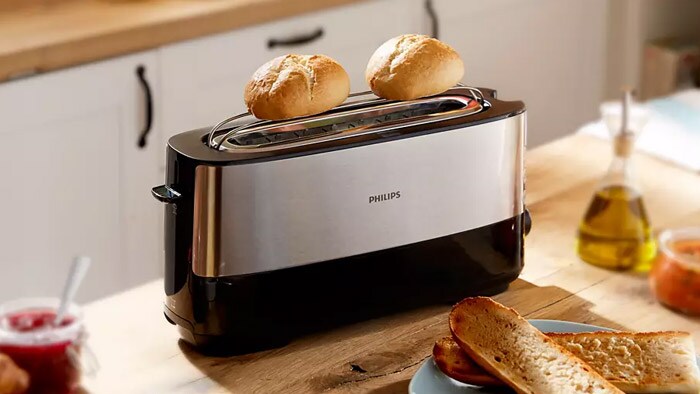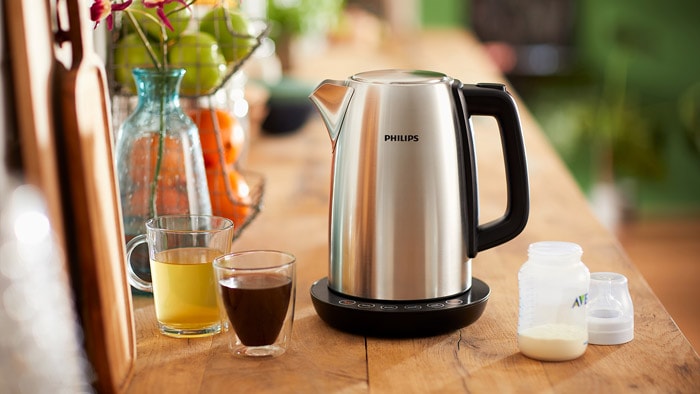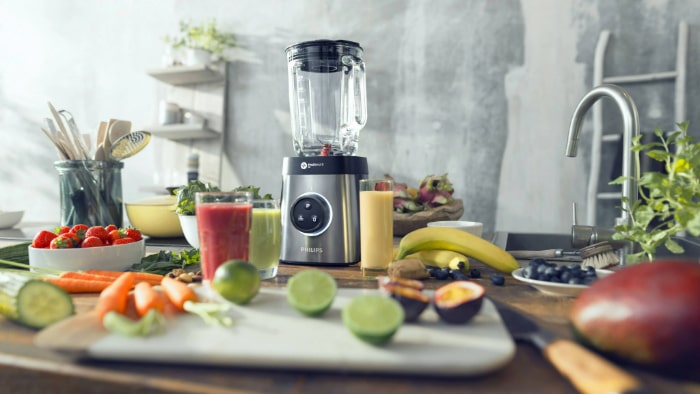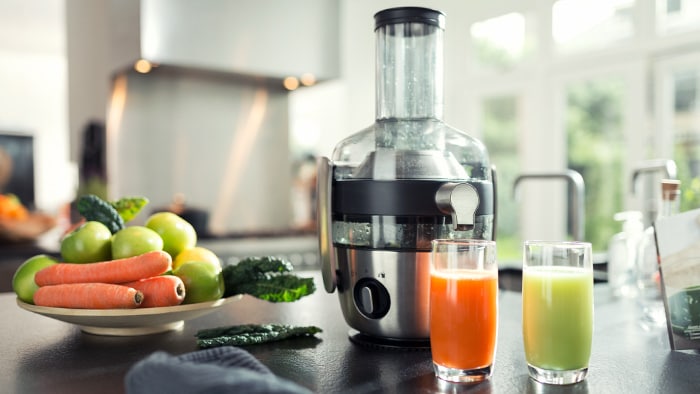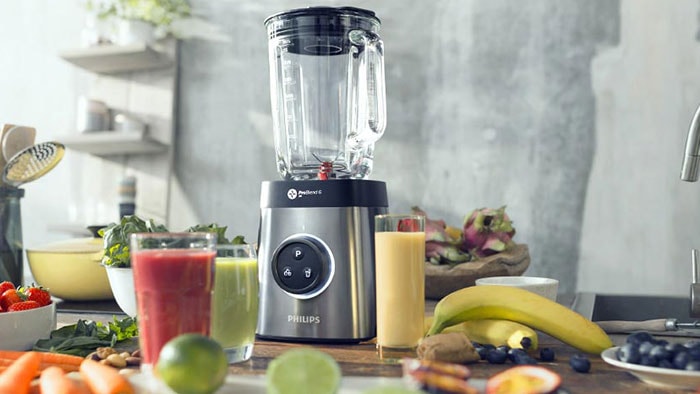Eco Conscious Edition
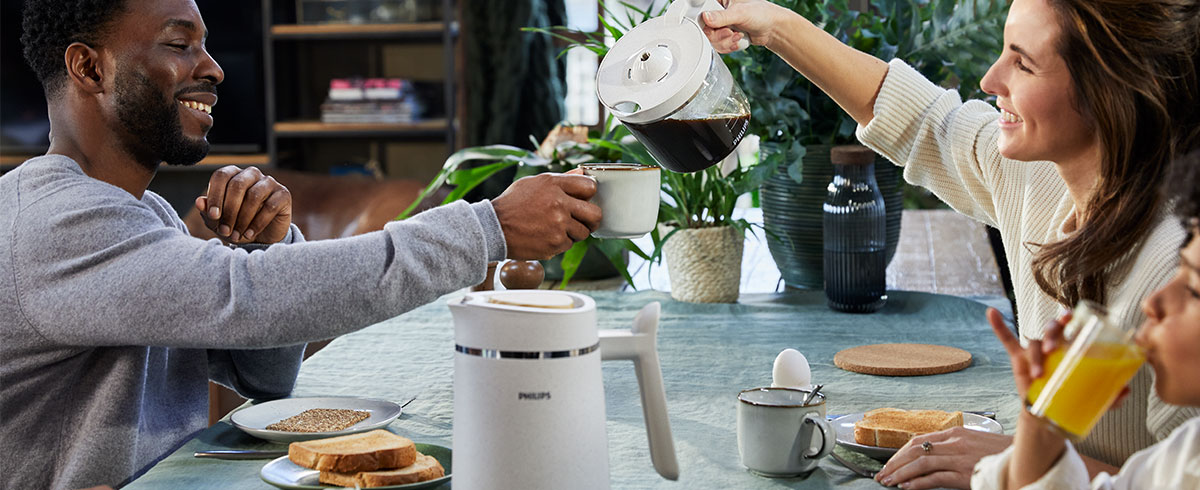
Eco-Conscious Edition: Eco-Friendly Kettles, Toasters, Blenders & Coffee Makers
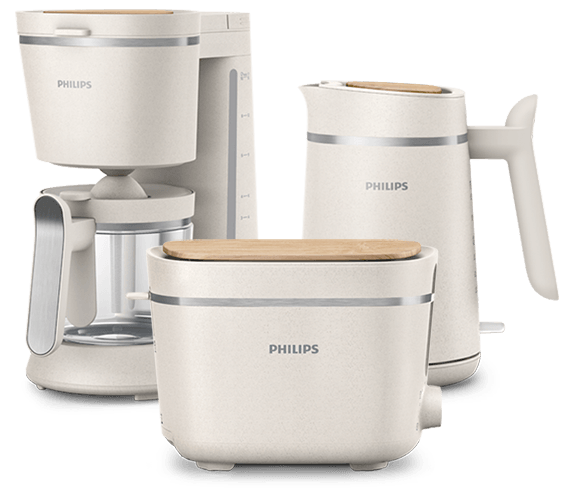
Eco Conscious Edition
The ultimate breakfast set
Elegant style, impeccable performance and lower carbon footprint thanks to its Bio-based plastic. A small step towards a greener future
The world’s first breakfast set made from used cooking oil*
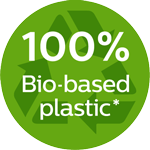
Help us put virgin plastics to rest with a Breakfast set made from used cooking oil and other plant waste. Used cooking oil can end up polluting the water and damaging our nature. But it does not need to be that way. In fact, used oil can become a resource – Bio-based plastics*. With this breakthrough innovation, we aim to avoid plastics made from fossil fuels and instead rely on what we already have.
By using this Bio-based plastic in our Eco Conscious Breakfast Set we contribute to the reduction of CO2 emissions, during production process, by 21%**. Using less and reusing more, as part of our plan that’s built to last.
With our Eco Conscious Edition we’ve combined great design and high performance with sustainable innovation
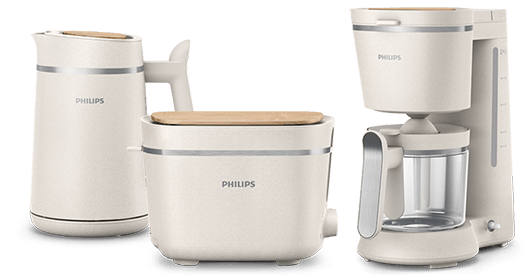
Dive into our collection
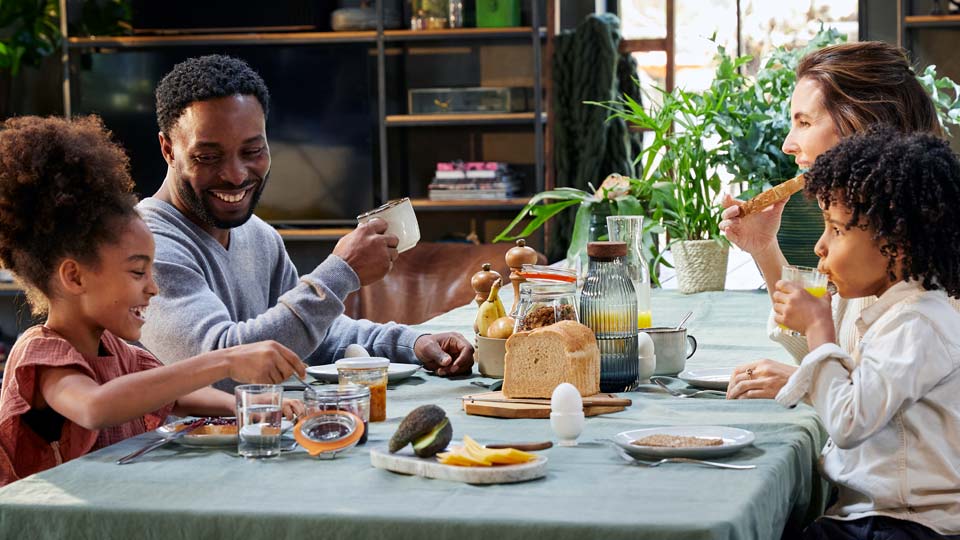
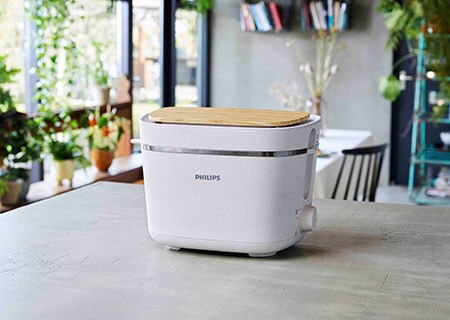
Made for any home
With our collection's modern and minimalistic design, sustainability never looked so stylish. Our nature-inspired range uses calm colors and natural materials and finishes that will look great in any kitchen.
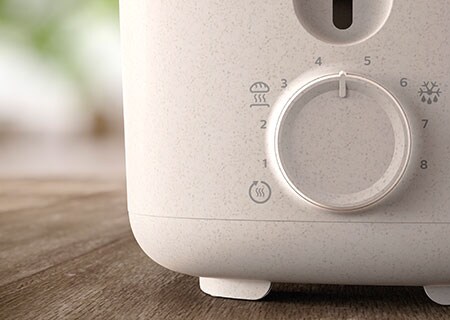
Recycled materials
Believe it or not, but we convert used cooking oil and other plant waste into Bio-based plastics*. The speckles on our products are little imperfections created by this process. How cool is that!
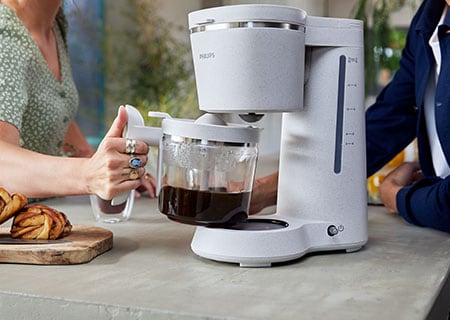
Built to last, for everyday use
We not only produce sustainably, we produce to last. All our products are carefully manufactured with recyclable and durable material. Built to last.

Made to perform
Make every morning fast and efficient. Save time and limit your waste in the kitchen with the Philips Eco Conscious edition.
The ultimate breakfast set
-
- 100% Bio-based plastics²
- 1.7 litre capacity
- Easy-to-read water level and cup indicators
- Silk white matt finish
-
- 100% bio-based plastics²
- 8 settings for the perfect browning
- Minimalistic 2-slot compact design
- Silk white matte finish
- Philips Eco Conscious toaster with simple design
-
- 100% Bio-based plastics²
- 1.2 l / 10 large cup capacity
- Automatic shut-off
- Silk white matte finish
-
- ProBlend technology
- 600 ml Tritan™ Renew tumbler
- Silk white matte finish
- Bio-based plastic
One important step in our plan that's built to last.
More on Eco Conscious Edition
- What is Bio-based material?
-
Bio-based material means a material that is composed of biological products or renewable domestic agricultural materials (including plant, animal, and marine materials) or foresty materials or an intermediate feedstock. It takes only years to be produced and usually needs CO2 for its production process, which is taken out of the air and reducing therefore global warming.
- What is fossil-based material?
-
Fossil-based material means a material made from petrochemicals. It was a biobased material, but within hundreds of million years converted via fossils into crude oil, which can exhaust, as only a certain volume is available on the earth. So is not sustainable and not suitable for circular economy as it takes many million years to be produced and releases CO2 to the air at end of life and contributing negatively to global warming.
- What is the difference bio-based/ fossil-based?
-
Main difference between bio-based material and fossil-based material is, that so it takes much more time to produce fossil-based materials, so that it can exhaust easily, what makes it less sustainable, whereas bio-based materials can be newly produced within years with taking out CO2 from the air, what makes it sustainable.
- What is bio-based PP?
-
It is the most common plastics material type in the world, but the main element of the material structure, the carbons, are coming from a bio-based feedstock, mainly from plant origin.
- What is bio-based and fossil-based plastics?
-
Carbons are the main structure element to build a plastic material and these are coming from a bio-based feedstock (mainly Biodiesel from plants) or fossil-based feedstock (crude oil from oil fields). You can use the same production lines for both feedstocks, as the basic material elements, the carbons, are the same.
- What is a renewable PP?
-
Renewable PP is a PP, which is capable of being renewed and is not depleted when used as it is part of the circular economy via chemical and mechanical recycling.
- What is Circular economy?
-
Circular economy is a system aimed at eliminating waste and the continual use of resources.
- What is Global warming?
-
Global warming is the mainly human-caused rise of the average temperature of the Earth climate system. The largest human influence has been the emission of greenhouse gases such as carbon dioxide, etc. Fossil fuel burning is the dominant source of these gases.

Need support for
your older models?
your older models?
Search by product number.
We found {number} products that are available outside your country, so local promotions may not apply.
Show productsFound {number} products
Found your model, but...
This product is not available in your country, but we found one in another country
Please choose your model based on the last 2 digits of your product number, for example RQ1280/21.
Found your model!
foundation-catalog.se01c-prx-search.search-sub-heading7
foundation-catalog.se01c-prx-search.search-sub-heading8
If this is the correct one, please select it below. Otherwise, search again.
